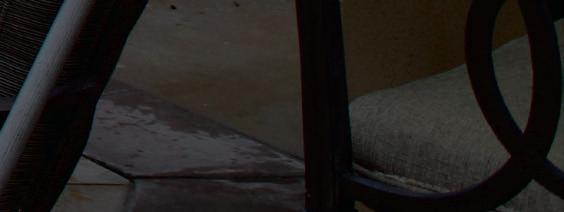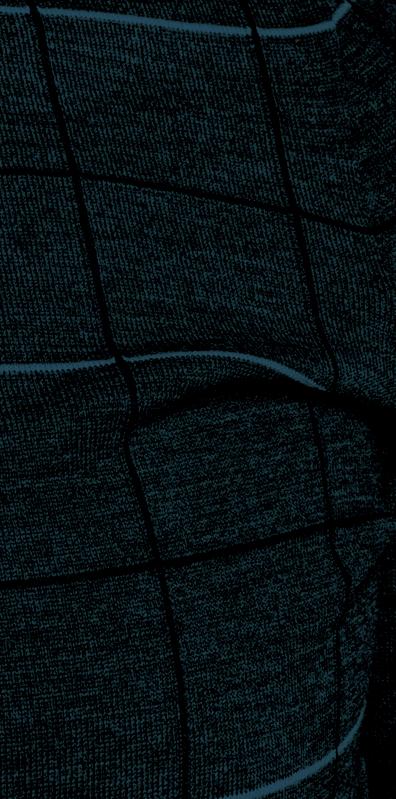
9 minute read
IMPACT
ISAAC CAMACHO
Interview by Julien Viallet
Advertisement
ISAAC CAMACHO is the Director at Accurate Termite and Pest Control, which was recently named Southern California’s top termite and pest company. Isaac joined the company back in 2006 when he first was just a doorto-door sales member for their team in the Summer. He quickly fell in love with California and the couple who ran the company and joined full time upon graduating from BYU in 2009. Since taking over as Director, Isaac has brought many innovative strategies to the table and transformed the termite and pest control industry. When the new strain of COVID reached California, his company was the first one to get regulations passed at the State level to allow pest control professionals to spear-head COVID-19 specific large-scale disinfections in community spaces.
Can you first tell us more about yourself and how you got involved with “Accurate Termite and Pest Control”?
In 2005, I had just returned home after a 2-year proselytizing mission in New York City. I had no money and no car, but I did have an acceptance letter to start school at BYU that fall. I made it to school in the fall with just enough money for one semester, knowing I had to do something to afford my studies beyond that semester. I heard about student teams that would do door-to-door sales during summer breaks and that each rep earned enough for about a year or more of schooling. The sales team I ended up signing up with went to sell pest control services door-to-door for Accurate Termite and Pest Control.
Once in California, I fell in love with the area and the Donnelly family--the company owners and operators. The Donnelly’s have a one-ofa-kind charm that stems from genuine interest and kindness towards everyone and especially their employees. Jim, company president, readily lent his surfboard to two of my sales colleagues when they expressed interest in learning to surf. They ended up destroying the board when they both tried to surf on it at once. Jim very graciously accepted their tail-in-between-legs mea culpa and did not take their offer to pay it back through their sales commissions. Surfboards are not cheap, and this experience cemented in me that the Donnellys are truly good-natured, down to earth people who value people and relationships more than money or things.
After graduating from college, I returned to Accurate to offer my sales and marketing consulting services with the firm that I was a partner in. Working with everyone at Accurate always felt like working with family. Eventually, I had a conversation with Jim to work out a way that would bring me into Accurate permanently.
What is your mission on a daily basis and what does a typical day look like for you?
I have one daily goal, and that is progress. I try to make sure I am working on something that moves something forward, so I’m not just checking off to-do-list boxes every day. Whether that’s improving a sales protocol, implementing process automation, or solving a problem, I try to do something every day to change the way we do business indefinitely. Granted, these are mostly small changes, but I get a real sense of accomplishment when I look back at the previous year and see how all the little tweaks and changes have added up to a more efficient, precise, and productive overall operating procedure. Over time, the summation of all big and small changes is a more robust organization that can handle more growth.
On a typical day, I start with at least a 30-minute workout of some kind before I head to work all the way downstairs to my home office. I try to set my week every Monday to mix activity types from high-priority to-dos, progress-related projects, and personal checkins with co-workers or clients every day. For the most part, my workdays consist of a blend of those activities. After work, I play the role of Zombie Dad in a comedic melodrama that plays in my house. My character fumbles through attempts to help raise three little monsters that I can’t seem to help make even more monster-like.
Before becoming a director at A.T.P.C (Accurate Termite and Pest Control), what was your career path? What is your schooling background?
Growing up, I always thought I would be a doctor. I went to a magnet High School where part of the curriculum included working in clinic and hospital settings during your junior and senior years. While I was in college and selling pest control door-to-door to pay for schooling, I was off ered the opportunity to come into a business consulting fi rm as an equity partner. The off er was too good to ignore and caused me to do some soul searching.
I dove deep to see what I envisioned my career in the medical fi eld would be like. I had enough small clinic experience to know I did not want to be a family practitioner or run my local clinic. From having worked in the operating room of a major Hospital in Dallas, I knew I would not enjoy being a practitioner in a large hospital. When I tried to visualize my future self, I did not see myself working with patients. I envisioned myself more as a hospital administrator implementing hospital policy and running a hospital’s business aspects.
After realizing that my real aspiration was business administration of some sort, I compared the two paths before me. One path would include many more years of school, debt, and proving myself to large corporations. The other would have me take full advantage of my skills at the time, help businesses grow as I gained more experience and some equity in my back pocket. I decided to take the opportunity to start a career in the business world. I crammed about two semesters worth of classes in the next semester to graduate quickly and get to work. I ended up graduating with a degree in psychology.
What has COVID-19 changed for your company? Did it impact jobs within the company? Yes, COVID19 had an impact on pretty much every job at Accurate. Pest control

is recognized as an essential service nationally so we have been operating, but it certainly changed a few things about the way we work. The fi rst thing we had to do was to whittle down support staff to a skeleton crew of people necessary for day-to-day production. We were forced to allow several offi ce support staff to work from home despite apprehensions that had kept us from making the move previously. We were also forced to change how some managerial or oversight tasks were done by automating some and delegating others. It was excruciating at fi rst, but later we realized that we had developed more effi cient protocols and systems than what we had before the pandemic.
We feel communication and clear goal-setting is vital to face both of these challenges. We have utilized all of the tools available to stay in touch and in constant communication. We have adjusted some key performance metrics for my sales team and others and set clear goals and measurable performance expectations. From there, it’s a matter of evaluating, reassessing, and providing support as needed to help everyone get to their win.




From a business point of view, is this crisis an opportunity to have an even greater impact on the local population?
Actually, this unique public health crisis did present a unique ability to utilize our expertise and resources for a greater good. For decades, pest control professionals in California have been performing spot Coronavirus disinfections anytime they dealt with rodent bio-waste. The purpose of doing so was to prevent Coronavirus’s animal strain from eventually evolving and infecting humans. However, regulations kept the industry from performing large-scale community disinfections. This would mean that performing largescale Coronavirus disinfections would fall to an untrained, unequipped, and inexperienced labor force.
Inexperienced labor forces suddenly mass applying Coronavirus disinfectants included dangerous or ineff ective mixing of hazardous products, exposing the general public to new health problems through overzealous applications, excessive and unnecessary residual and runoff that would harm our environment and protected wildlife. We led the eff ort to have regulations changed to allow pest control professionals to take the lead in performing largescale Coronavirus disinfections in the current context of COVID19 pandemic. We started with a public petition to temporarily change or alter the regulations, and within days had over a thousand residents supporting the eff ort. We were steady in contacting and educating key stakeholders about the issue. Soon the Governor’s offi ce, environmental regulators, and key scientifi c communities agreed that California’s 20,000+ licensed pest control applicators were the best suited to perform large-scale Coronavirus disinfections.
Many elderly-care facilities, homeowners associations, and cities credit large-scale disinfections with minimizing the impact and stopping the devastating eff ects of COVID19 spread among their residents. We are always proud of being in an industry that contributes to the overall wellness of our community, and are especially proud to have been a signifi cant part of the frontline fi ght against COVID19 in California.
In times of crisis, I imagine that you and your team must be overbooked. How do you achieve a balance between your professional and personal life?
Yes, we are overbooked in a few senses of the word. Balance is always achieved by having an effi cient team and eff ective communication. The fi rst step is always to be sure you are in tune with your co-workers, family, friends, and even yourself. I try to create an environment where people never hesitate to say, “I need you” at work, home, or friends.
Second, is to utilize your entire circle of infl uence to make sure those around you don’t feel defeated by the challenges they face. To do this eff ectively, you have to be willing to acknowledge that it doesn’t always have to be you. Consider everyone being on the court with you. When you see someone who needs their load reduced, consider that perhaps someone else is better positioned than you are to help. Be judicious in the tasks you take on and the loads you distribute on others.
Especially now, our current way of working has blurred the lines between work and home even more. Trying to compartmentalize eventually leads to frustration when it seems like two diff erent worlds collide. In short, allow yourself to see everyone around you as playing a diff erent role in the same team; then, be a team player.
Website: accuratetermitecontrol.com
Innovators, entrepreneurs & visionnaires







w w w. t h e m i n d s e t 3 6 0 . c o m








